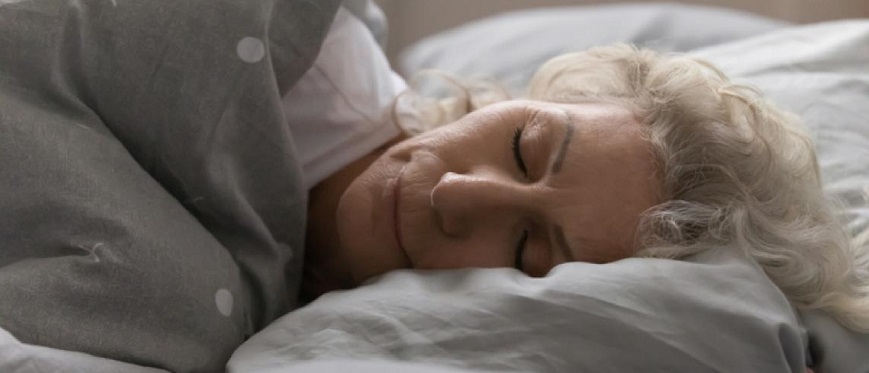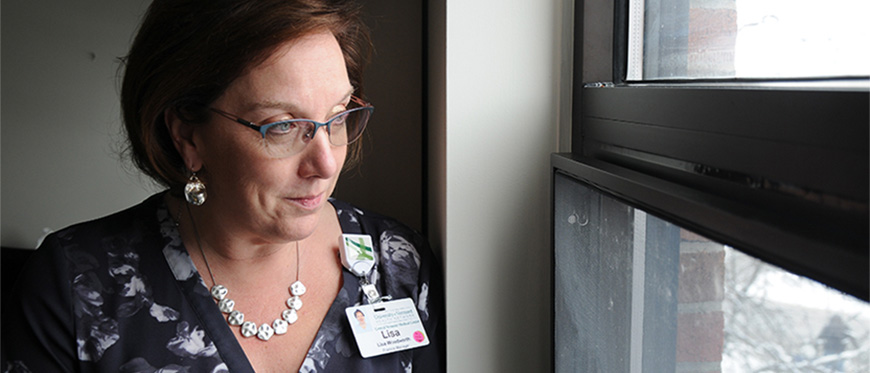Six to eight hours – uninterrupted – is best.
As a medical student, Lauren Suggs, MD, was often sleep-deprived. As she moved among various rotations during her residency, her sleep schedule also changed frequently.
“I felt awful sometimes. And it felt like every body system was affected. My GI system was irregular, I had frequent headaches, my mood was off and I had a more difficult time regulating my emotions,” she recalls.
Now a practicing cardiologist at UVM Health Network - Central Vermont Medical Center, Dr. Suggs has a firsthand appreciation of one of the most dangerous, longer-term health impacts of poor sleep: an increased risk of heart attacks and heart failure.
While sleep is not yet as well-studied as other cardiac risk factors, such as hypertension, diabetes, age and smoking, the research does show a connection between sleep quality, sleep duration and cardiac risk. Specifically, she says, getting an average of six to eight hours of uninterrupted sleep each night has been shown to decrease your future risk of a heart attack.
Dr. Suggs notes that most of the studies that examine the heart-health impact of poor sleep have focused on shift workers, whose sleep schedules are constantly changing. “There is a much higher risk of adverse cardiac events, like heart attack or heart failure, among that population,” she says.
However, she also points to a 2020 study in the Journal of American College of Cardiology that indicates that the problem of poor sleep is much more widespread among the general population. According to the summary: “Irregular sleep schedules, characterized by high day-to-day variability in sleep duration or timing, represent possibly milder but much more common and chronic disruption of circadian rhythms in the general population than shift work.”
In that study, 1,992 healthy participants completed a seven-day sleep assessment, then were followed afterwards for a period averaging just under five years. During that time, 111 participants experienced cardiac events, and the data showed a strong link between shorter and less regular sleep cycles, and one’s likelihood of having a heart attack.
While nighttime screen use, caffeine and alcohol are certainly contributing factors, the biggest cause of chronic sleep disturbance that Dr. Suggs sees in her practice is sleep apnea.
“Almost half of my patients are dealing with sleep apnea, so I see a lot of it,” she says. Among the general population, the incidence of sleep apnea is in the range of 15 to 30% among men and 10 to 15% among women, but those rates are increasing, because the strongest risk factor for developing obstructive sleep apnea is obesity.
“During obstructive sleep apnea, your airway is restricted while you sleep. Your oxygen levels drop, and there are periods of time when you actually stop breathing,” she says.
Untreated sleep apnea has a direct effect on your heart; longstanding data show that sleep apnea leads to atrial fibrillation and pulmonary hypertension.
Dr. Suggs emphasizes the “untreated” part. “Getting diagnosed and treated significantly decreases the heart risk, and can save you a lot of other issues down the line as well,” she says.
A telltale sign of sleep apnea is excessive daytime sleepiness. Your partner may also tell you that you’re snoring a lot, or gasping for air during the night. They might even notice that you stop breathing for a short period of time. If any of those apply to you, she suggests that you consult your primary care physician, who can refer you to a sleep medicine doctor for an assessment – something she does for her patients frequently.
Dr. Suggs also offers the following additional tips to improve your sleep:
- Stop drinking alcohol, or reduce your intake. While a drink or two before bedtime may help you fall asleep, you’ll wake up a couple of hours later as your body metabolizes the alcohol.
- End your “screen time” – including TV, computers, tablets and smartphone use – at least a couple of hours before bed.
- Go to bed at the same time every night.
- Avoid caffeine later in the day. “I personally use a cutoff time of noon. But people’s sensitivity varies, and people can build up a tolerance,” Dr. Suggs says. She cautions that those with a high caffeine tolerance are still affected by their late-day coffees, teas and sodas, but they just might not notice.
But, she says, it’s never too late to make positive changes. “If you make lifestyle changes that improve your sleep, you’ll quickly notice you feel better. The cardiovascular benefits will accrue over a period of years, and you’ll put yourself at a much lower risk of heart attacks or heart failure. Think of it as an investment in your future.”


